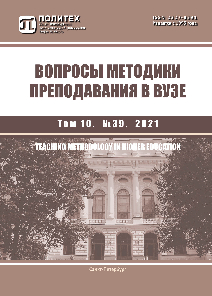Interdisciplinary approach to teaching industry-specific translation
Being an interdisciplinary field of knowledge, translation didactics, as well as translation theory, will be largely determined by research in the field of linguistics, cognitive and humanitarian sciences and, therefore, integrate various approaches at the level of goal-setting, content, principles and technology for developing a translation teaching model. The article presents an integrative translation teaching model of translation practice and discusses ways to build such a model through the example of industry-specific translation. The creation of the model was preceded by the «Foresight Session: Translator 2030», the development of a draft translates professional standard, an analysis of market and modern approaches to translator’s activity modelling and training of translators. The integrative approach to examining the translator’s profession makes it possible to define the developed model as information technologymediated interaction between teachers, translators and students, which contributes to the creation of a learning context and conditions for education and improvement in the industry-specific translation. This model provides for the translator’s competences – cross-cultural, special, social, personal and digital – in the process of consistently performing professional tasks facing a translator. The analysis of the components of translational competence made it possible to group them within the framework of key competences and use the modular training technology in this model. Each module includes one translation task, internal (competences) and external (digital technologies, dictionaries, etc.) required for its solution, resources of solving the set task, exercises to develop skills and test assignments for checking the formation of professional translator’s competence.



